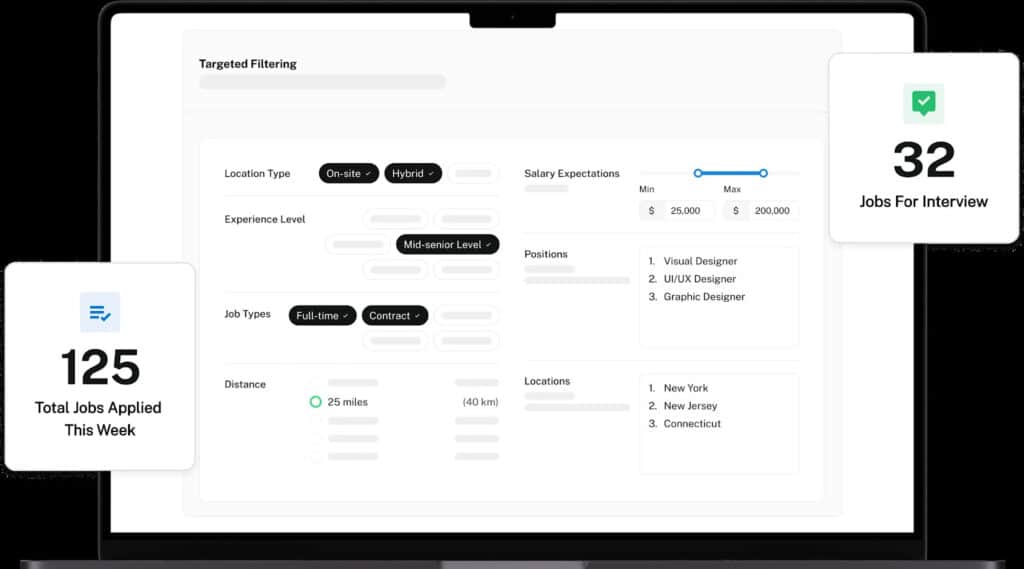When we talk about high-paying jobs, most of us immediately think of gigs such as coding, software dev, and many other highly technical works.
However, contrary to what we believe, there are many opportunities waiting for us in basic industries.
But wait, the definition of basic industries is maybe not what you think it is.
Basic doesn’t necessarily mean simple. Basic doesn’t always mean easy.
Basic industries are the backbone of our economy. They’re the fundamental sectors that, if they didn’t exist, would lead to very chaotic lives. In short, they are essential to our society.
This sector has some of the highest-paying jobs worldwide. From petroleum engineers making $130,000+ to mining supervisors earning six-figure salaries.
But which roles actually pay the most? And what skills do you need to land these lucrative positions?
In this guide, we’ll look at the highest-paying jobs across basic industries, breaking down salary expectations, required qualifications, and how to position yourself for these rewarding careers.
This is your roadmap to the most lucrative opportunities in these essential industries worldwide.
What Are Basic Industries?
Basic industries extract or produce raw materials essential for other industries, generating products largely exported outside the local community.
They form the foundation of the production chain by converting natural resources into materials that businesses use to create consumer goods, making them important to the economy.
Key basic industries include:


Never Worry About AI Detecting Your Texts Again. Undetectable AI Can Help You:
- Make your AI assisted writing appear human-like.
- Bypass all major AI detection tools with just one click.
- Use AI safely and confidently in school and work.
- Mining and mineral extraction
- Agriculture
- Forestry
- Oil and gas extraction
- Steel production
- Chemical manufacturing
- Paper manufacturing
These sectors (especially oil and gas) operate “upstream” in the economy, meaning they’re among the first steps in the production process.
They extract value from the earth’s resources and transform them into usable materials that “downstream” manufacturers and businesses depend on.
Why Basic Industries Are Essential for the Economy
Basic industries create entire economic ecosystems. Their impact ripples throughout the economy in several ways:
- Job Multiplier Effect: Each job supports multiple others in retail, housing, and services.
- Trade Boost: Exports bring external capital, driving local economic growth.
- Supply Chain Backbone: Provides raw materials essential for manufacturing and construction.
- Innovation Hub: Advances in efficiency, safety, and sustainability benefit other sectors.
- Regional Growth: Creates jobs in resource-rich rural areas, spurring development.
- Economic Stability: Less volatile than consumer-driven industries, sustaining demand even in downturns.
The stability of basic industries also makes them particularly valuable during economic downturns. While not completely recession-proof, these sectors typically experience less volatility than consumer-dependent industries.
People might postpone buying a new car, but steel production continues because infrastructural needs remain constant.
Best Paying Jobs in Basic Industries (With Salaries & Skills)
The best-paying jobs in basic industries offer remarkable compensation, often exceeding what you’d find in many white-collar professions.
Here’s a breakdown of top-paying roles across various basic industry sectors:
Petroleum Engineer
- Average Salary: $141,960 per year
- Required Education: Bachelor’s degree in petroleum engineering
- Skills Needed: Reservoir analysis, drilling technology, production methods
- Job Outlook: Strong, with 8% projected growth through 2032
Petroleum engineers develop methods for extracting oil and gas from both new and existing wells. They analyze reservoir data, design drilling equipment, and optimize extraction processes.
With global energy demands continuing to rise despite the transition to renewables, petroleum engineers remain in high demand.
Mining Engineer
- Average Salary: $85,000 – $105,000 per year
- Required Education: Bachelor’s degree in mining engineering or related field
- Skills Needed: Mineral assessment, excavation planning, safety management
- Job Outlook: Steady, with particular growth in critical minerals for technology
Mining engineers design mines and determine the best ways to extract minerals safely and efficiently. They develop both underground and surface mining operations, considering environmental impacts and worker safety.
With a growing demand for rare earth elements and metals used in technology, mining engineers with specialized knowledge are especially valuable.
Chemical Plant Manager
- Average Salary: $72,490 – $171,400 per year
- Required Education: Bachelor’s degree in chemical engineering plus experience
- Skills Needed: Process optimization, team leadership, regulatory compliance
- Job Outlook: Stable, with opportunities in specialty chemicals and green chemistry
Chemical plant managers oversee the daily operations of facilities that produce industrial chemicals, plastics, pharmaceuticals, and other products.
They manage staff, ensure production targets are met, maintain safety standards, and continually improve efficiency.
As chemical manufacturing becomes more automated, managers with both technical expertise and leadership skills command premium salaries.
Metallurgist
- Average Salary: $95,640 per year
- Required Education: Bachelor’s or master’s degree in metallurgical engineering
- Skills Needed: Materials science, process metallurgy, quality control
- Job Outlook: Growing, especially in specialized alloys and recycling
Metallurgists study and develop metals and alloys, determining how to process ores and refine metals for specific applications.
They might work in steel mills, aluminum plants, or specialty metal production.
With advancing technology requiring increasingly specialized materials, metallurgists with expertise in high-performance alloys are particularly well-compensated.
Mining Operations Manager
- Average Salary: Up to $168,000 per year
- Required Education: Bachelor’s degree plus extensive experience
- Skills Needed: Operational planning, budget management, safety oversight
- Job Outlook: Positive, especially for those with experience in sustainable practices
Mining operations managers coordinate all aspects of a mining site, from extraction to initial processing to shipment.
They manage large teams, heavy equipment, and substantial budgets while ensuring regulatory compliance.
This role typically requires working up through mining supervisor positions, but the pay reflects the significant responsibility involved.
Drilling Superintendent
- Average Salary: $89,810 per year
- Required Education: Bachelor’s degree preferred, but extensive experience can substitute
- Skills Needed: Drilling operations expertise, crew management, problem-solving
- Job Outlook: Strong in oil and gas regions
Drilling superintendents oversee all aspects of drilling operations at oil and gas sites.
They manage drilling supervisors, coordinate with engineers, troubleshoot equipment issues, and guarantee that drilling proceeds safely and efficiently.
This position rewards those who’ve progressed through drilling roles and demonstrated both technical mastery and leadership ability.
Forestry Operations Director
- Average Salary: $95,000 – $140,000
- Required Education: Bachelor’s degree in forestry plus significant experience
- Skills Needed: Sustainable harvesting, logistics planning, environmental compliance
- Job Outlook: Stable, with a growing emphasis on sustainable forestry
Forestry operations directors manage timber harvesting, reforestation, and forest management activities.
They oversee large teams across extensive territories, balance production goals with environmental stewardship, and maintain compliance.
As sustainable forestry practices become increasingly important, directors with expertise in this area command premium compensation.
Chemical Engineer
- Average Salary: $90,000 – $135,000
- Required Education: Bachelor’s degree in chemical engineering
- Skills Needed: Process design, thermodynamics, reaction engineering
- Job Outlook: Steady growth, especially in specialty and biological applications
Chemical engineers design processes and equipment for large-scale chemical manufacturing.
They develop methods to transform raw materials into valuable products, improve existing processes, and ensure safety and efficiency.
Opportunities are particularly strong in emerging areas like biochemicals, advanced materials, and environmental applications.
Agricultural Operations Director
- Average Salary: $90,000 – $150,000
- Required Education: Bachelor’s degree in agriculture plus substantial experience
- Skills Needed: Crop management, agricultural technology, business acumen
- Job Outlook: Evolving with technological advances in agriculture
Agricultural operations directors manage large commercial farming operations, overseeing everything from planting and harvesting to equipment maintenance and crop sales.
They implement advanced agricultural technologies, manage complex logistics, and optimize productivity.
With increasing consolidation and technological sophistication in agriculture, experienced directors command impressive salaries.
Paper Mill Manager
- Average Salary: $100,000 – $145,000
- Required Education: Bachelor’s degree plus significant industry experience
- Skills Needed: Process management, quality control, operational efficiency
- Job Outlook: Stable in packaging, challenging in printing papers
Paper mill managers oversee the production of paper products, from pulping to finishing.
They manage large teams, complex equipment, and demanding production schedules while maintaining quality standards.
While traditional printing papers face declining demand, packaging papers continue to grow with e-commerce, creating opportunities for skilled managers.
What Are the Best Paying Jobs in Basic Industries?
High salaries in basic industries often include hazard pay and performance-based bonuses tied to production targets and safety records.
Roles in high-risk environments, like offshore drilling or mining, offer additional compensation for dangerous conditions.
Geographic location also impacts pay, with remote sites providing premium wages to attract skilled workers.
While entry-level salaries may be modest, rapid career growth allows employees to significantly increase earnings through promotions.
Many supervisory and management roles are filled internally.
Additionally, these jobs often come with strong benefits, including healthcare, retirement plans, and housing allowances for those in remote or demanding locations.
Skills & Qualifications Needed for High-Paying Basic Industry Jobs

Securing top salaries in basic industries requires strategic skill development.
While requirements vary by role, certain qualifications consistently lead to premium compensation.
Technical Skills & Industry Certifications
Technical expertise is key to high-paying basic industry careers. Key areas include:
- Engineering fundamentals – Mechanics, thermodynamics, and materials science form the foundation of many roles. While formal education provides these, targeted training enhances them.
- Specialized technical knowledge – Mastery of industry-specific tools and processes, like petroleum extraction techniques or chemical production systems, is one of the best skills to put on your resume to stand out.
- Safety management – Hazard prevention is critical. Certifications like Certified Safety Professional (CSP) increase job prospects and salaries.
- Regulatory compliance – Knowledge of environmental, safety, and quality regulations is a hard skill employers want in regulated sectors.
- Digital technology skills – Automation, SCADA, and data analytics proficiency add value in modern industrial settings.
Industry certifications validate expertise and often lead to higher salaries.
Some of the most sought-after include:
- Professional Engineer (PE) License
- Project Management Professional (PMP)
- Six Sigma Black Belt
- Industry-specific credentials (e.g., API for petroleum, ASQ for quality control)
Many employers fund certifications, accelerating career growth and earnings.
Degree vs. On-the-Job Training
While engineering degrees provide a direct path to high-paying technical roles, alternative routes exist:
- Four-year engineering degrees – Opens doors to lucrative positions in petroleum, mining, and chemical sectors.
- Technical associate degrees – Two-year programs in process technology or industrial maintenance offer high-earning potential.
- Apprenticeships – Paid, hands-on training leads to journeyman status in skilled trades like millwrighting and instrumentation.
- On-the-job progression – Many companies promote from within, allowing entry-level workers to move into high-paying roles with performance-based advancement.
The best approach depends on individual circumstances.
Many professionals mix formal education with workplace learning, proving ability over credentials alone.
How to Find the Best Paying Jobs in Basic Industries
Landing high-paying roles in basic industries requires you to play it smart.
One of the best job application tips is to optimize both your search and application process.
Focus on high-growth sectors like critical minerals, specialty chemicals, and advanced agriculture.
Established companies typically offer better pay and benefits, so research salary trends through industry reports and sites like Glassdoor.
Geographic flexibility boosts earning potential, where top jobs are often in resource-rich regions like Texas oil fields or Gulf Coast chemical plants.
Networking is equally important, as many hires happen through referrals. Professional associations, LinkedIn, and industry conferences can help you connect with decision-makers.

Undetectable AI Smart Applier streamlines your job hunt by automating applications 24/7.
To boost your chances even further, don’t forget to polish the tone of your materials.
If you’re using AI to generate resumes or cover letters, it’s essential that they sound natural and personal—not robotic. That’s where the AI Humanizer comes in.

This tool transforms stiff or generic AI-generated text into smooth, engaging writing that feels like it was crafted by a real person.
Whether you’re applying to a mining role, operations job, or technical management post, Humanize AI helps your message resonate authentically with recruiters.
Here’s how it works:
- Upload your resume and connect LinkedIn—AI instantly refines your application materials.
- Customize filters so AI targets the best industry-specific roles.
- The system applies to jobs automatically, even while you sleep, ensuring maximum opportunities.
This approach allows you to apply to more positions and tailor your materials, significantly increasing your chances of landing interviews for the best-paying roles.
Common Myths About Working in Basic Industries
Several misconceptions discourage candidates from pursuing basic industry careers.
Let’s set the record straight:
- Myth: Basic industries are dying.
Reality: While some sectors have shrunk, productivity has increased, and new technologies create fresh opportunities.
- Myth: These jobs are all dirty and dangerous.
Reality: Many roles now focus on automation, engineering, and management rather than physical labor.
- Myth: Automation is eliminating jobs.
Reality: It’s reshaping roles—workers skilled in operating and maintaining automated systems earn higher wages.
- Myth: You need an engineering degree.
Reality: Skilled trades, technical roles, and supervisory positions can reach six-figure incomes without a four-year degree.
- Myth: There’s little innovation.
Reality: Basic industries drive advancements in materials science, process technology, and sustainability.
Far from outdated, these industries remain vital economic pillars, constantly evolving with modern advancements.
FAQs About the Best Paying Jobs in Basic Industries
Do basic industry jobs require a degree?
Not always. While engineering degrees help, apprenticeships, associate degrees, and hands-on experience provide alternative pathways.
Many employers prioritize skills over formal education, and some offer tuition assistance to employees pursuing degrees.
Which basic industry jobs are growing the fastest?
1. Critical minerals extraction – Lithium, cobalt, and rare earth elements fuel demand for mining specialists.
2. Specialty chemicals – Process engineers and production managers benefit from growth in pharmaceuticals and electronics.
3. Agricultural technology – Precision farming roles combining agriculture and tech are expanding rapidly.
4. Sustainable forestry – Environmental stewardship creates demand for forestry professionals with sustainability expertise.
Are basic industry jobs recession-proof?
While no job is fully recession-proof, basic industries tend to be more stable due to:
1. Essential products – Construction, food, and energy remain in demand.
2. Government infrastructure investment – Stimulus projects support industries like steel and forestry.
3. Global markets – Many basic industries rely on exports, reducing local economic dependency.
Striking Gold
Basic industries continue to offer stable, high-paying opportunities, with many roles exceeding six-figure salaries and providing strong benefits.
Building specialized technical skills in extraction, processing, and production is key to long-term success, whether through engineering degrees, certifications, or apprenticeships.
Geographic flexibility can further boost earnings, especially in resource-rich regions where demand for skilled workers remains high.
To maximize your job search efficiency, leverage Undetectable AI Job Application, which automates applications, tailors resumes, and optimizes cover letters—helping you land the best opportunities faster.
With the right skills and tools, your next high-paying career move is within reach.
Also, try our AI Detector and Humanizer in the widget below!
